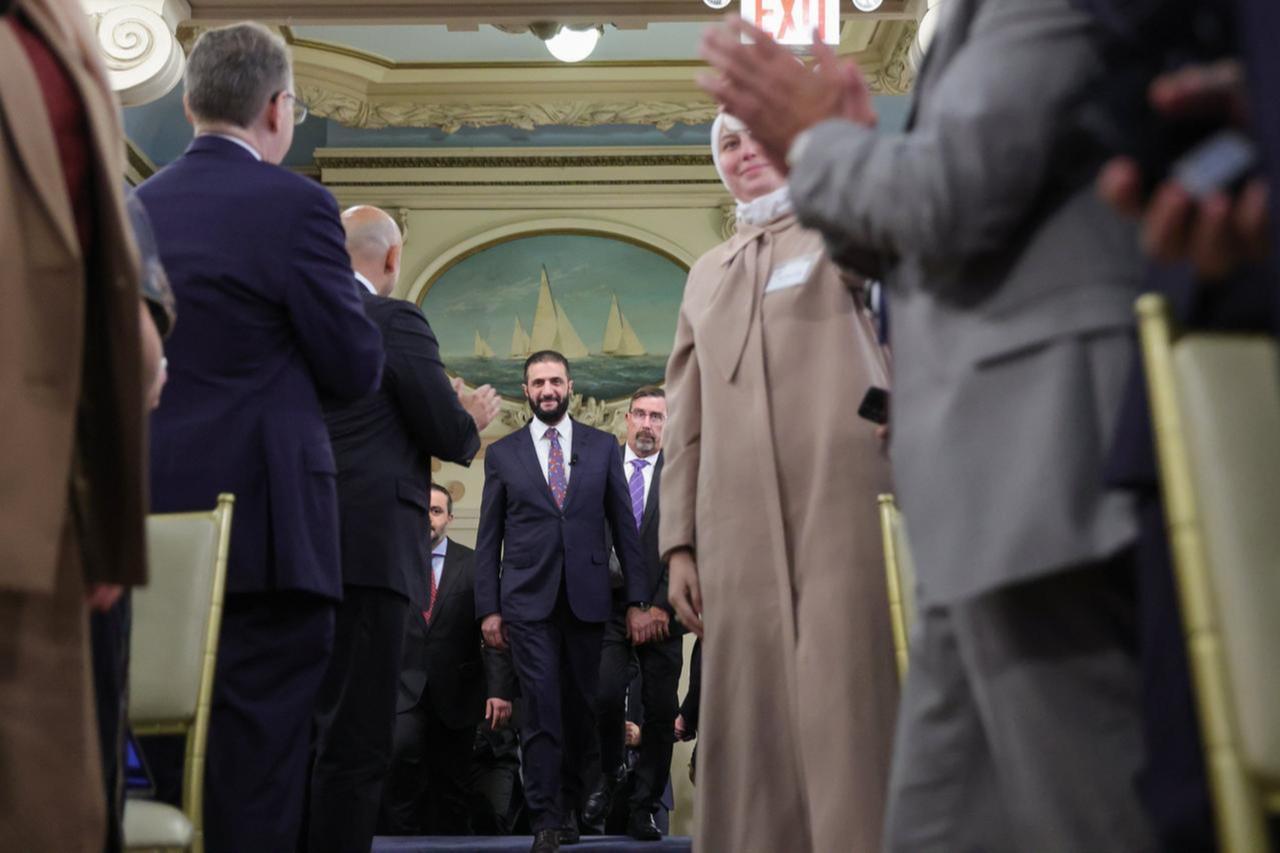
Syrian President Ahmad al-Sharaa arrived in New York on Sunday to take part in this week’s United Nations General Assembly summit—marking the first participation by a Syrian leader in nearly six decades.
The visit of Sharaa, the first by a Syrian president since Nour al-Din al-Atassi’s address in 1967, marks a new chapter after six decades of absence.
The president is scheduled to deliver his speech on Wednesday at the 80th session of the U.N. General Assembly as part of his bid to break Syria’s isolation.
Aleppo Governorate is inviting the public to attend a live screening of Sharaa’s first historic speech.
Observers see his visit as an acknowledgment by the U.N. of the country’s new political landscape and the start of international legitimacy for the current government. They describe the event as an opportunity for citizens to witness Syria’s return to global diplomacy.
Sharaa is also the first Syrian president ever to take part in the high-level segment of General Assembly Week, held from Sept. 22 to 30.
His visit to the United States comes less than a year after he led a rebel offensive that ousted President Bashar al-Assad on Dec. 6, 2024, and assumed office in January.
Sharaa met with U.S. Secretary of State Marco Rubio on Monday with Syrian Foreign Minister Asaad al-Shaibani, and participated in the Two-State Solution conference at the United Nations headquarters.
Earlier the same day, the Middle East Institute hosted Sharaa for a special address and a side discussion.
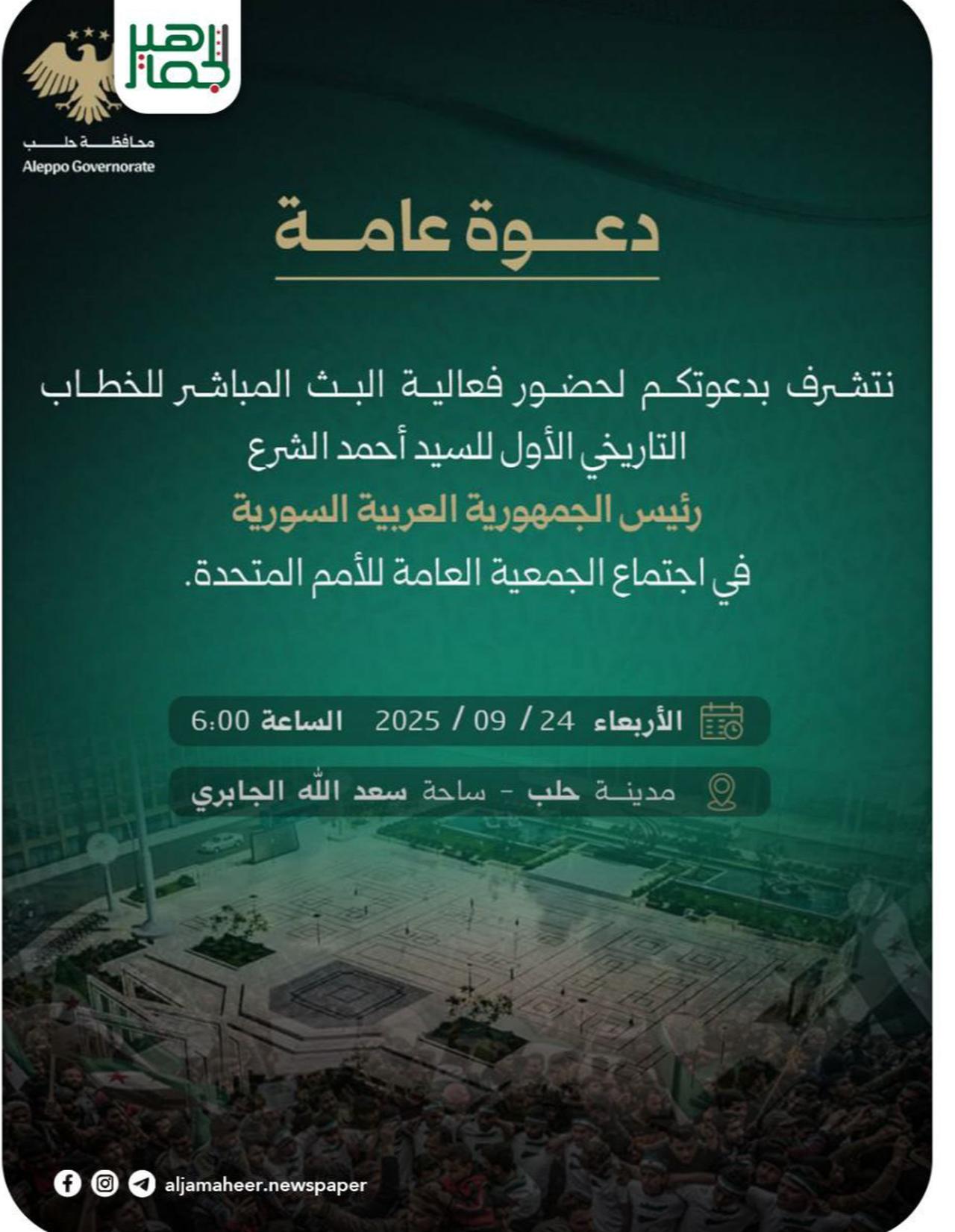
Muhammed Suleyman, a political researcher on Syrian affairs at Jusoor for Studies, told Türkiye Today that the absence of Syrian leaders such as Shukri al-Quwatli and Husni al-Za’im was largely due to the era of military coups that dominated Syria before the Assad era.
Leaders were preoccupied with internal conflicts and feared a coup while traveling abroad.
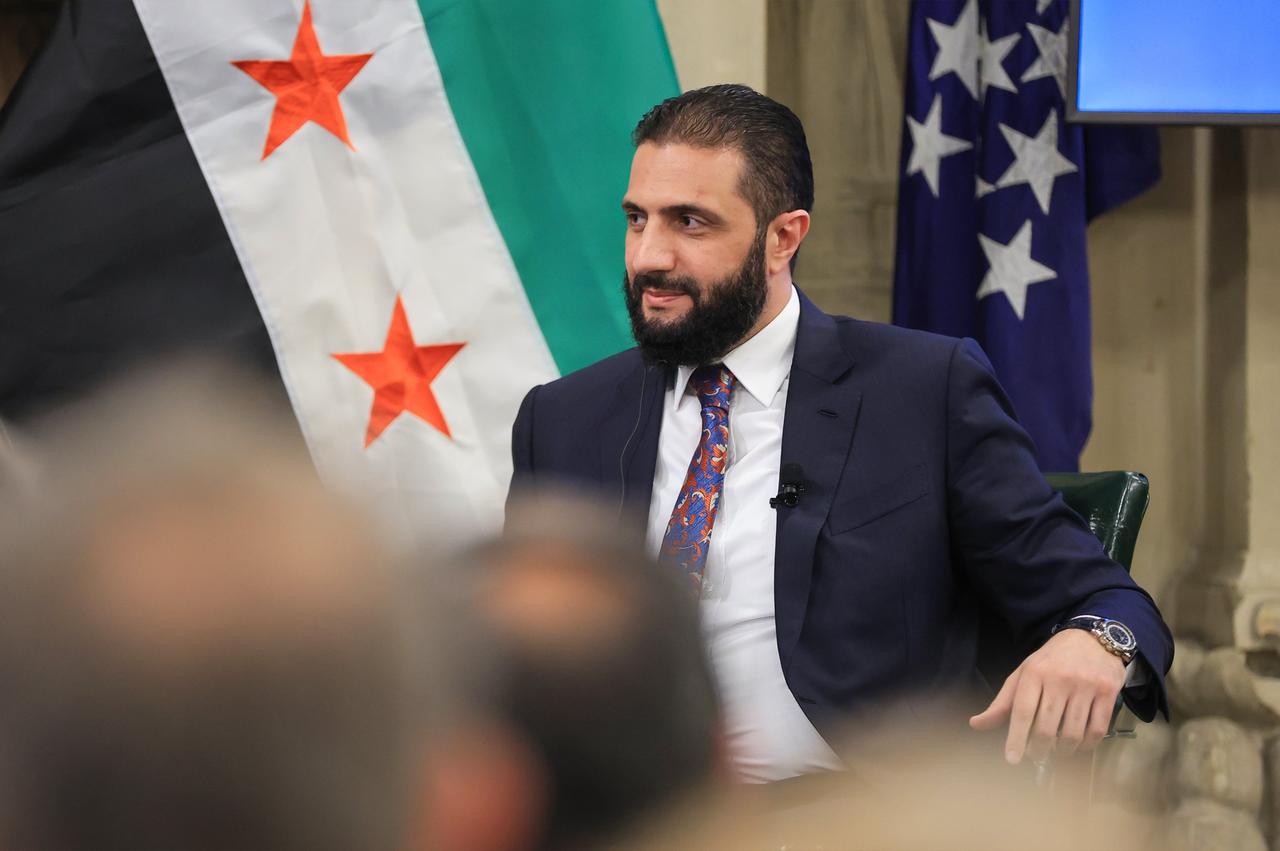
Some presidents served extremely short terms, in some cases as little as one day. Others were removed from office without a formal U.N. General Assembly meeting or official inauguration by coup leaders, leaving their constitutional powers and legitimacy uncertain.
Suleyman added that under Hafez and Assad, the regime deliberately avoided U.N. meetings under the banner of “ideological Baathism.”
Internationally, Syria was sanctioned and labeled a rogue state. Its domestic repression, combined with alliances with Iran, resulted in multiple sanctions and diplomatic isolation.
Taken together, these factors render this visit "a break from the era of dictatorship, military rule, and isolationist policies," Suleyman said.
Suleyman said that the visit represents the international legitimization of Syria’s new political leadership and opens a new chapter after six decades of isolation and absence from the global stage.
Syria’s new state administration policies, centered on counterterrorism, curbing drug smuggling, and cooperation with international organizations, reflect the country’s intent to reinforce its image as a state committed to international law.
He added that bilateral meetings on the sidelines of the session offer the country a chance to present its narrative directly to world leaders, potentially weakening the impact of the Israeli narrative opposing recognition of the government.
The meeting opens the door to securing international support for reconstruction efforts and new economic opportunities.
He noted that the president’s ability to represent his country in New York after decades reflects a greater degree of stability for the state today.
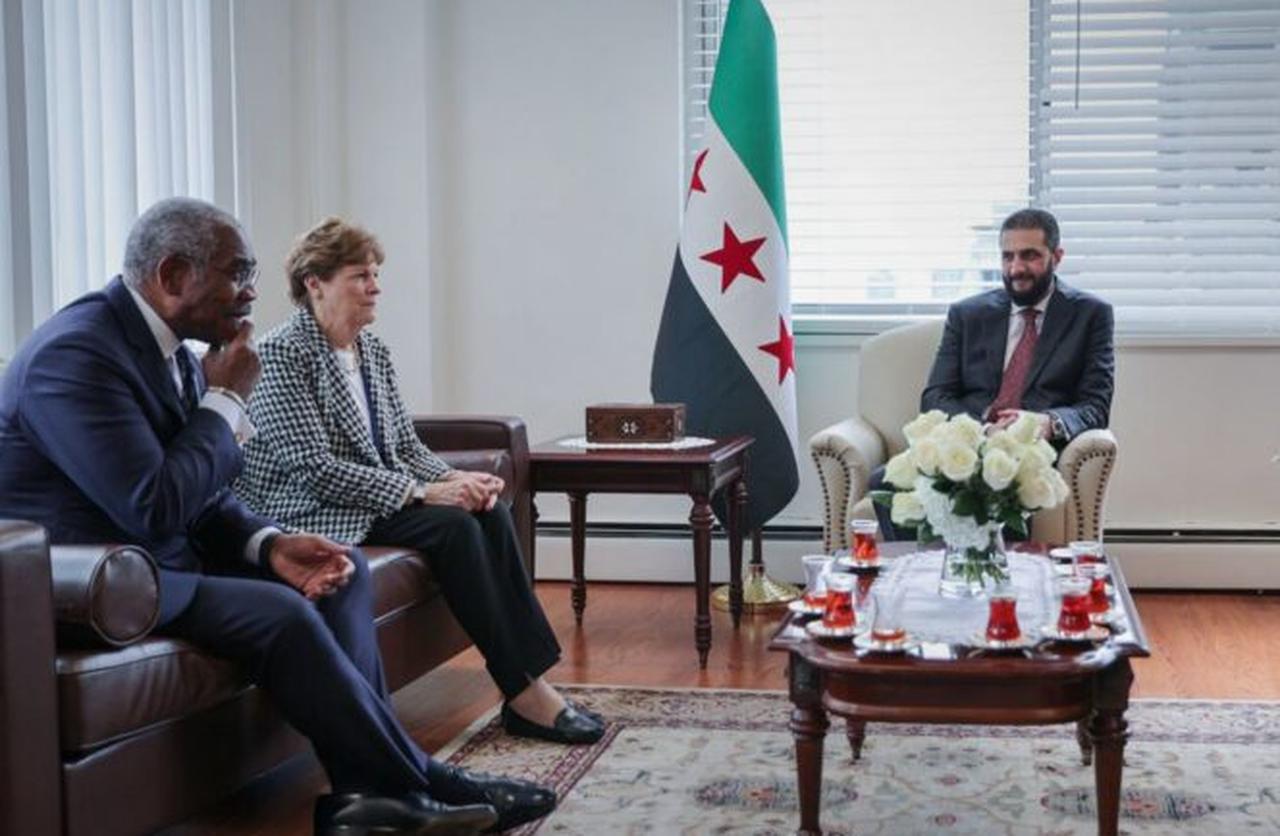
At the 2025 Concordia Annual Summit in New York, retired General David Petraeus, former commander of the U.S. Central Command and former CIA director, chaired a panel discussion with Syrian al-Shara.
Speaking at the event, Sharaa remarked, "We were once on the battlefield together, and now we meet on the field of dialogue," a pointed reference to the shift in his relationship with the international community.
Sharaa’s personal history, formerly known as Abu Mohammed Al-Jolani, the leader of Al-Nusra Front linked to al-Qaeda, underscores the significance of this meeting. In May 2017, the United States had offered a $10 million reward for information leading to his capture. This encounter took place in the very place where he was once regarded as a wanted terrorist, yet today he sits as a recognized head of state.
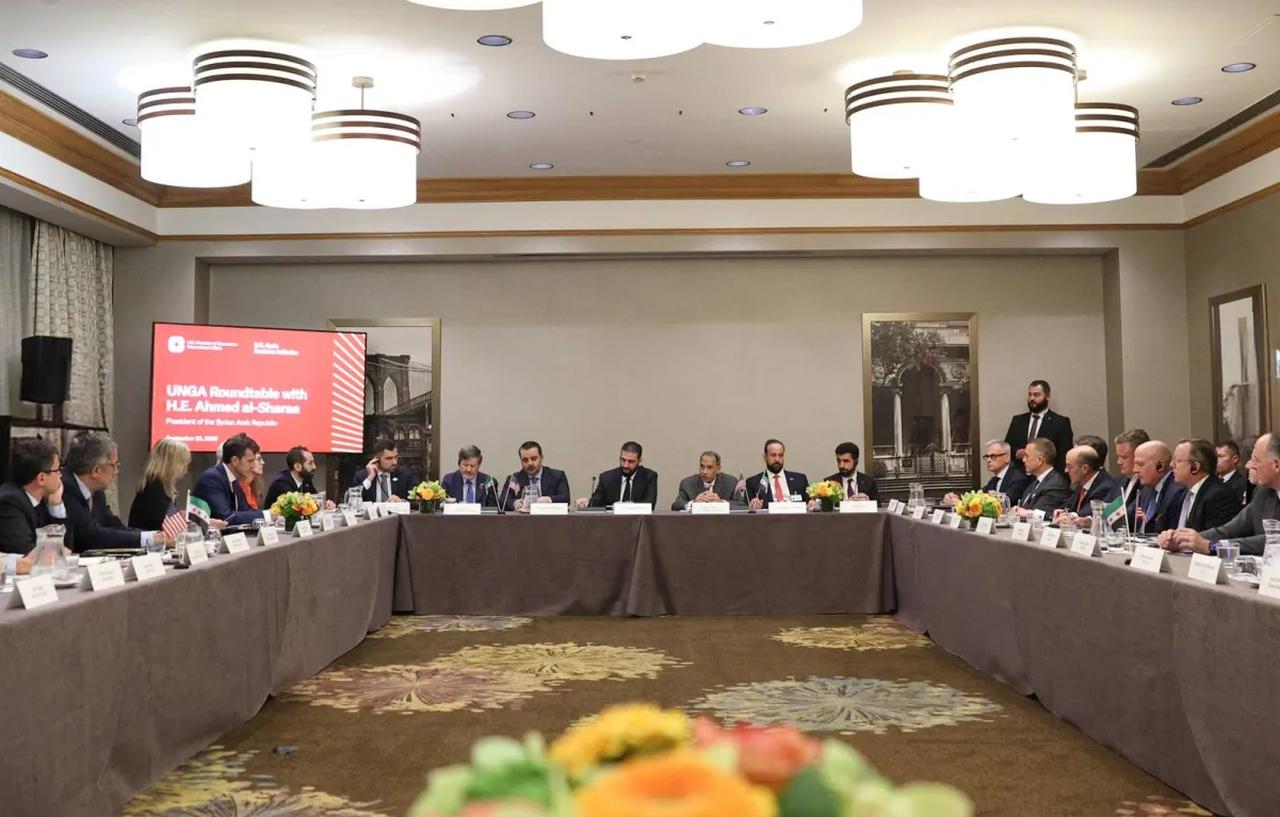
Analysts describe the event as a dramatic transformation in Sharaa’s political trajectory, from militant leader to a national leader engaging in global dialogue.
Sharaa met with U.S. President Donald Trump on May 14, marking the first presidential-level meeting of its kind in 25 years, since Hafez al-Assad’s meeting with President Bill Clinton.
Trump described the meeting as “great” and ordered the lifting of most sanctions on Syria, but the legislation authorizing them remains in effect in the United States.
Speaking aboard the plane en route to Qatar, Trump said that Sharaa is a true leader; he led the revolution and is remarkable, adding that the Syrian president is a “young, attractive guy.” Tough guy. Strong past. Very strong past. Fighter.”
Syrian Information Minister Hamza Al-Mustafa called Sharaa’s visit to New York a historic milestone. It marks Syria’s return to the international stage after decades of isolation under the previous regime.
In an interview with Al Arabiya, Al-Mustafa said al-Sharaa’s speech will carry multiple messages. First, it will show that Syria has restored its role internationally. Second, it will signal that the world now recognizes Syria’s regional leadership.
The minister said the address will stress two main pillars: stability and economic development. Syria is pursuing an active diplomatic agenda, including the first visit by a Syrian foreign minister to Washington in 25 years. The goal is to advance efforts to lift remaining sanctions.
Mustafa highlighted Syria’s new openness to the Arab world and beyond. The country seeks normal relations with all nations. Syria now aims to be a key actor in regional stability, not a source of crises.
He added that the speech will describe the past years clearly. International efforts failed to find a political solution. Yet the Syrian people managed to liberate their country themselves.
Finally, he said the visit is mainly ceremonial. It strengthens Syria’s presence in international forums. It also aims to gather support for stability and address sanctions. Syria’s image is shifting from one of destruction, as Sharaa has pursued reform and development over the past nine months.